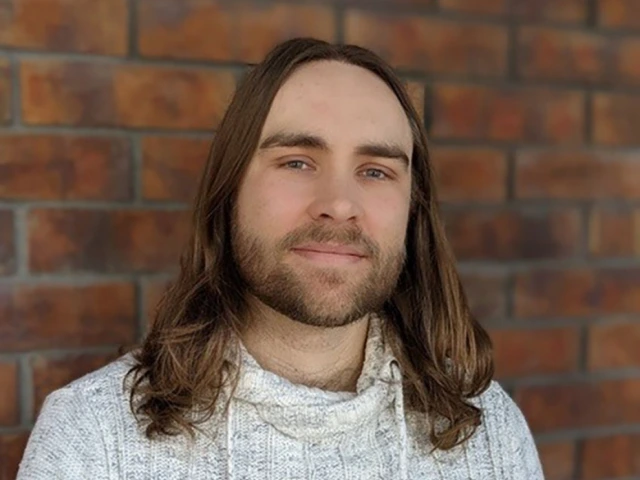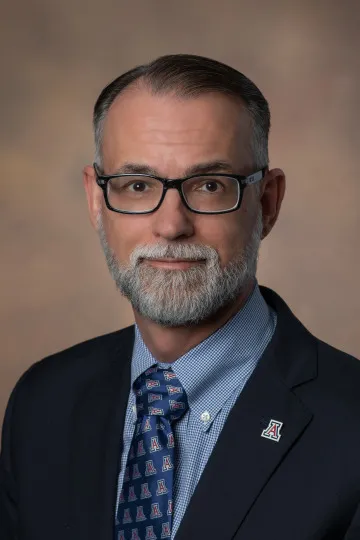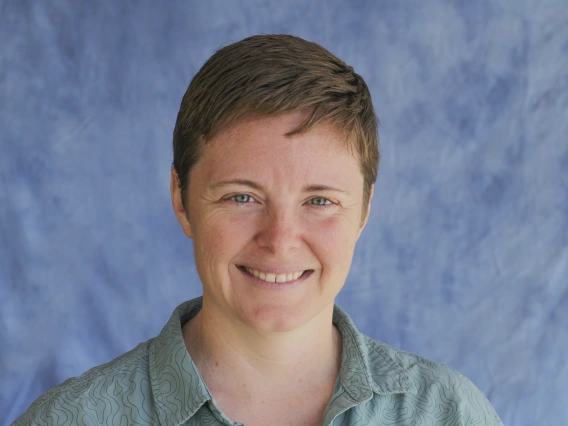
Tyler Robinson, Interim Director

Dante S. Lauretta, Regents Professor, Lunar and Planetary Laboratory
Dante Lauretta, Founding Director
Dante Lauretta is a Regents Professor of Planetary Science and Cosmochemistry at the University of Arizona’s Lunar and Planetary Laboratory. He is an expert in near-Earth asteroid formation and evolution.
He is the leader of NASA's OSIRIS-REx Asteroid Sample Return mission. OSIRIS-REx is the United States’ premier mission to visit one of the most Potentially Hazardous near-Earth Asteroids, survey it to assess its impact hazard and resource potential, understand its physical and chemical properties, and return a sample of this body to Earth for detailed scientific analysis. He also maintains an active research program in Cosmochemistry and Meteoritics.

Corey J. Knox, Deputy Director
Dr. Corey Knox serves as the Deputy Director of the Arizona Astrobiology Center (AABC). As a social and educational researcher, program designer, and educator, she is dedicated to diversity, equity, and to inclusive science learning, teaching, and engagement. At AABC, her projects have the central goal of facilitating transdisciplinary dialogue across astrobiology, the space sciences, the humanities, the arts, and the social sciences.
Informed by her life experiences, identity, and academic journey as a first-generation college student, Dr. Knox develops educational programs and opportunities that broaden participation and reshape the landscape of science education for students, faculty, and the broader community. She is eager to collaborate with community members, science professionals, and students to create and expand opportunities that make scientific inquiry relevant and accessible to all.

Adrienne Vancura, Science Projects Manager
Dr. Adrienne Vancura is the Science Projects Manager at the Arizona Astrobiology Center, driven by a deep passion for RNA molecules. Her research journey has taken her across the globe, from investigating how RNAs rearrange genomes in unicellular organisms to capturing RNA in bodily fluids as disease biomarkers. How do RNA building blocks form in outer space, and how do they assemble into long nucleotide chains?
Dr. Vancura aims to tackle these fascinating questions and more alongside students and faculty. Through grant writing, the introduction of new model organisms, and the development of cutting-edge lab experiments, she hopes to push the boundaries of astrobiology and RNA research.

Stuart Hameroff, Professor Emeritus
Stuart Hameroff, MD, is Professor of Anesthesiology and Psychology, and former Director of the Center for Consciousness Studies at the University of Arizona in Tucson. Hameroff became interested in intelligent behavior of microtubules, protein lattices which organize activities within living cells. Hameroff and colleagues developed theories of microtubules as self-organizing molecular computers. In the 1990s Hameroff teamed with Sir Roger Penrose on the controversial Penrose-Hameroff “Orch OR” model of consciousness based on quantum computing in brain neuronal microtubules, a notion bolstered by recent evidence.
A full-time clinical anesthesiologist, Hameroff also organizes the biennial interdisciplinary conferences The Science of Consciousness Conference Series, aka “Toward a Science of Consciousness.”

Lauren James, Education and Engagement Manager
Lauren James is the Education and Engagement Manager of the Arizona Astrobiology Center. Lauren has been involved in astronomy outreach in the local community since 2013, and has been with the AABC since 2024.
Her goal is to offer hands-on astrobiology learning opportunities to students throughout Southern Arizona, while also offering interactive experiences and lessons online for broader outreach. Lauren's focus is on K-12 outreach that includes and enhances the Arizona State Educational Standards.

Karla Iveth Paredes Aguilar, Assistant, Program Development

